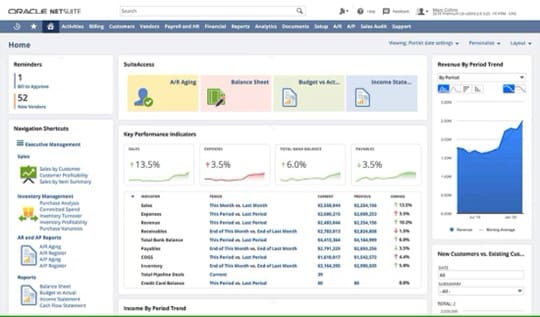Whether managing scores of complex transactions and documents or delivering exceptional and relevant advice, real estate professionals must continually adapt and innovate to maintain their competitive edge. However, in today’s fast-paced market, relying on manual processes and outdated systems can hinder productivity and lead to lost revenue, reduced profitability, and disappointed clients. And with buyer optimism on the rise—reaching a 30-month high in October 2024, as indicated by Fannie Mae’s Home Purchase Sentiment Index—realtors should be ready to use every available tool to bring in new clients and close deals quickly. But finding the right balance between automated processes and personalized customer care presents its own set of challenges. Implementing too few automated tools can trigger slow sales and missed opportunities, while relying too heavily on automation could leave clients feeling ignored and neglected.
This article delves into the intricacies of real estate automation by examining its advantages, identifying key processes to automate, and outlining best practices for seamless implementation. These strategies empower businesses to choose the tools that will work for them and their clients, building a strong foundation for growth in the process.
What Is Automation in Real Estate?
Real estate companies use automation to cut down on manual labor and increase staff productivity at all levels, including agents and management. Automation tools minimize errors while speeding up processes, allowing real estate professionals to focus on higher-value and customer-facing activities that require human interactions and expertise. And in an industry where strong client connections are a primary vehicle for generating revenue, automation affords real estate professionals enough time and attention to build and maintain those valuable relationships.
Recent technological advancements, particularly in cloud-based software solutions and artificial intelligence (AI), have made automation technology more accessible, increasing its potential scope and benefits for real estate businesses of all sizes. From property listings and lead generation to contract and property management, automation helps real estate companies and their clients succeed in this highly competitive environment.
Key Takeaways
- When implemented properly, automation in real estate can speed up processes, improve accuracy, reduce costs, and enhance the client experience.
- Before choosing an automation solution, businesses must carefully assess their needs and limitations to set realistic and achievable expectations.
- Strategic planning, comprehensive training, and ongoing monitoring can help real estate businesses maximize automation’s benefits and minimize its risks.
Automation in Real Estate Explained
Real estate automation encompasses a wide range of technologies and applications, including automated property listings across multiple platforms, chatbots for customer inquiries, simplified contract management, and AI-powered lead generation tools that analyze data to help agents identify potential buyers and sellers. Beyond direct customer service, real estate companies are also automating property management processes to automatically collect rent, schedule maintenance, and communicate with tenants.
By automating repetitive and time-consuming tasks, real estate professionals can spend less time generating paperwork and reviewing contracts and more time focusing on potential sales and closing deals. Additionally, automation can help businesses reduce costs and scale operations without losing their ability to deliver personalized attention and advice to clients. And as technology continues to evolve, automation will likely bring even more benefits to the real estate industry, but only for those businesses that strategically implement, apply, and update these tools.
How Does Real Estate Automation Work?
To automate their processes, real estate companies typically integrate a variety of tools, such as AI and machine learning, into a new or existing software platform, the most common of which are customer relationship management (CRM) and property management systems. However, specific applications can vary based on a company’s type, size, and how it conducts its business. Once implemented, these systems analyze data and identify patterns to automate repetitive tasks and give performance insights, ultimately helping real estate professionals work more effectively.
For example, according to the National Association of Realtors Research Group’s 2023 Technology Survey, 92% of real estate businesses use at least one social media network to promote listings, maintain relationships with existing clients, generate leads, and track industry trends. Automated CRM systems can collect contact information and preferences from customer interactions on social media posts and organize this data alongside data from property listing websites and other areas into one centralized location. Then, agents can use this database to more easily track and follow up with potential clients, identifying those most likely and/or ready to begin the next step. Similarly, automated real estate systems can use this data to automatically generate requested documents and reports, as well as set customizable alerts for both staff and clients to ensure that documents are completed accurately and in a timely fashion, thereby minimizing delays and canceled sales.
Benefits of Real Estate Automation
Real estate companies can use automation throughout their operation, from a potential client’s first contact to closing the books on a successful deal. But automation can also bring less obvious, indirect benefits when implemented strategically. Therefore, business leaders should carefully review their processes and deploy these tools where they will do the most good. Key benefits of automation include:
- Streamlines the sales funnel: Automation tools help real estate businesses nurture leads and create and send targeted marketing messages to guide clients through each step of the buying or selling process, which increases conversions and reduces the time, resources, and effort required to close deals.
- Enhances lead segmentation and targeting: By using automation to analyze data, agents and marketing teams can better identify and segment promising leads along predetermined criteria, such as location, budget, or property preferences. This allows staff to prioritize leads that are most likely to convert to sales or that fit best with their expertise, improving success rates.
- Strengthens relationship management: Clients, especially first-time buyers or sellers, can be overwhelmed by the process and may require regular check-ins and reminders. Realtors can leverage automation to schedule consistent updates that are sent at specific times during the process, such as a checklist delivered a week before closing, to keep clients informed and prepared for what comes next. Additionally, chatbots can provide instant support for anxious clients who pose common questions outside of normal business hours.
- Improves accuracy: Automated systems can minimize inaccuracies in data entry, documentation, and other processes by helping to eliminate tedious and error-prone human tasks. This allows real estate businesses to maintain accurate and compliant records that contribute to limiting liabilities, assuaging customer frustration, and diverting the extra resources that would have been needed to manually correct inaccuracies.
- Boosts efficiency and productivity: By reducing the time and effort required for routine tasks through automation, agents and real estate administrative staff can improve operational efficiency and focus on more productive uses of their time, without letting their routine responsibilities slip. Examples include following up with potential clients, scheduling contractors, staying current with market trends, attending closings, and responding to urgent problems. Automation tools can also help staff prioritize tasks by providing automated notifications, reminders, and centralized scheduling software.
- Increases business control: Through real-time insights into key performance indicators (KPIs) and comprehensive data analytics, business leaders can make well-informed decisions and adapt quickly to changing market conditions. This increased transparency helps real estate businesses stay flexible and competitive, while also working toward long-term goals.
- Decreases operational costs: Many of the benefits discussed in this section contribute to decreased costs and a stronger bottom line. But beyond reducing labor hours, automation can also save money in distinctive ways, including lowering advertising expenses by targeting the right audiences with personalized messages or minimizing the cost of maintaining rental properties through efficient rent and maintenance workflows.
- Enhances customer experience: Thanks to recent breakthroughs in generative AI, real estate businesses can create faster, more personalized, and significantly higher-quality chatbot services than was possible in the past. These advancements not only enhance efficiency but also improve the customer experience. Chatbots answer commonly asked questions and provide instantaneous 24/7 support, while automated email campaigns and text messages can keep clients informed about new listings, sale progress, market updates, or any other information they should know.
- Supports scalability: Automation allows real estate companies to take on a larger volume of work, without proportionally increasing staff or resources, because it handles tasks at scale quickly and efficiently, including contract generation and processing. This scalability helps real estate firms expand their market share or offerings and take on more clients without sacrificing service quality.
- Enables faster decision-making: Many automation systems can provide real-time data analytics and actionable suggestions that enable faster, better informed decisions. For example, property valuation tools can analyze local market trends and recent sales data to provide accurate, up-to-date estimates of a property’s value. This, alongside similar analytics tools, such as risk assessment software, helps agents and investors make buying and selling decisions that are based on current data, not hunches or outdated information.
Challenges of Real Estate Automation
Potential benefits aside, real estate automation also comes with challenges that businesses must navigate to successfully implement and make the most of these technologies. Here are some of the key challenges associated with real estate automation.
- Initial setup and integration costs: Depending on the size and scope of the project, implementing automation can require significant up-front investments in software, hardware, and training. Real estate businesses must carefully assess their needs and budget to prioritize tools that will bring the most benefits, then allocate resources accordingly. Businesses should also consider their existing systems’ capabilities and processes to choose solutions that will either smoothly integrate with current systems or can replace those systems without creating new issues or gaps.
- Training and change management: Adopting automation technologies often requires both staff and management to learn new skills and adapt to new ways of working. This presents challenges, especially for businesses with established processes and experienced, long-term staff who may be resistant to change. Effective change management is essential in these situations to guide the organization through the transition. To keep employees informed and prepared for upcoming changes, companies must invest in comprehensive training programs and openly communicate with staff at all levels. This helps management create a smooth transition when adopting automation.
- Data security and privacy: As real estate businesses implement automation systems, they must prioritize data security and privacy, especially for sensitive client information, financial data, and proprietary business insights—all prime targets for cybercriminals. Real estate companies must make sure their systems incorporate robust security measures to protect data and maintain client trust, including encryption, access controls, cybersecurity training, and regular security audits.
- Potential for algorithmic bias: Automated systems, particularly those that leverage AI, can sometimes perpetuate or amplify biases present in historical data or programming. In the real estate industry, this could cause unintended discrimination in fields such as property valuations, lending decisions, or marketing targets. To minimize these risks, real estate businesses must be proactive in identifying and mitigating potential biases by regularly auditing their automation tools and manually verifying outputs. This due diligence helps realtors ensure transparency and fairness in their decision-making processes, reducing liability risks.
- Reduction in personal interaction: Although automation can significantly improve efficiency and productivity, real estate firms must strike the right balance between automated processes and human interaction or risk alienating clients who expect face-to-face time with staff. Overreliance on automation can lead to a lack of personalized attention and advice, potentially frustrating clients and driving them to competitors. Real estate companies must carefully consider which tasks can be effectively automated and which benefit from human expertise and empathy. And, it’s important to remember that all clients are different and there’s no perfect balance, so businesses should regularly reevaluate and adjust their operations as needed.
When to Automate Real Estate
When deciding if, when, and what to automate, real estate companies should consider a variety of factors, including the business’s size and complexity, the specific processes that will be automated, and the available resources and budget. Generally, real estate businesses should consider first automating repetitive, time-consuming tasks that are prone to human error, such as data entry and document management. Businesses should also analyze their workflows to identify bottlenecks, especially as the business grows, and consider how automation can help scale operations to accommodate increased workloads without hiring additional staff.
To gain an accurate view of the specific advantages that automation can bring to their operations, real estate firms can run cost-benefit analyses to determine the potential return on investment from unlocked cost-savings and make sure that any automation solutions align with the company’s overall goals and strategies. Businesses should also consider any possible hurdles they may face, such as the need for staff training and the impact of automation on client relationships—particularly during the initial onboarding process—and develop strategies to mitigate these challenges. Ultimately, the decision to automate should be based on a thorough and comprehensive understanding of the business’s unique needs, circumstances, and timing, as well as a clear vision for how automation will be implemented and leveraged to support long-term growth.
9 Processes to Automate in Real Estate
By identifying and prioritizing the most time-consuming and repetitive tasks, companies can strategically use automation in direct and targeted ways. Here are nine common processes that real estate businesses can automate.
1. Marketing Functions
Real estate companies can automate marketing tasks, such as email campaigns, social media management, and targeted advertising, to reach and engage potential clients more effectively. This is achieved through better and more accurate audience segmentation, as well as more robust KPI tracking. Together, these processes help businesses determine which ad campaigns and marketing strategies successfully reached the intended audiences and converted them to customers.
2. Lead Generation and Management
Automated lead generation tools can collect and analyze data from multiple sources, including direct website interactions and third-party social media or marketing posts, to create a database of potential buyers and sellers and identify which ones are most likely to become bona fide clients. Then, these systems can help realtors track and nurture these relationships throughout the sales process and beyond, minimizing the number of clients who feel neglected, as well as missed revenue opportunities.
3. Property Management
Automated systems help managers simplify and speed up tasks, such as rent collection, lease renewals, maintenance requests, and tenant contacts. To do this, these systems typically present a portal where tenants can easily submit payments, documents, and requests to the appropriate staff, improving communication and reducing delays. Such systems can also automate scheduling and send reminders to help managers prioritize tasks when managing maintenance staff.
4. Accounting and Financial Management
Real estate businesses can use accounting software to quickly and accurately track income and expenses, manage payroll and taxes, and generate regular or ad hoc financial reports. These automated financial systems are often integrated with other platforms, such as property management software, to increase visibility and give financial managers a more holistic view of their company’s financial health when making decisions.
5. Internal Workflows
Automated workflow management systems allow real estate professionals to standardize their processes, from onboarding new clients to closing deals and post-sale follow-ups. By automating internal workflows, staff can create comprehensive checklists and timelines for each task and set automatic reminders before deadlines arrive. This kind of detail-oriented approach helps businesses improve communication and collaboration among team members and reduces the risk of errors and delays.
6. Customer Relationship Management (CRM)
Automated CRM systems centralize client data, track interactions, and provide insights into customer preferences and behavior. Furthermore, they can automate tasks, such as follow-up emails, appointment scheduling, and targeted marketing campaigns, that help real estate businesses provide a more personalized and responsive experience for their clients—a key way to increase loyalty and referrals.
7. Data Analytics and Reporting
To stay competitive, real estate businesses must understand market conditions and customer behavior, and adjust strategies accordingly. However, manual efforts are often too slow and error-prone to keep up with trends effectively. Automated tools can analyze vast amounts of data from diverse sources, such as property listings, social media, economic conditions, customer interactions, and financial records. Then, they use this data to identify growth or revenue opportunities and provide insights into how real estate professionals can stay ahead of their competition.
8. Real Estate Transactions
Real estate transactions often entail numerous steps, starting with property searches and virtual tours and extending to managing offers and completing closing processes, which can create bottlenecks and slow down sales. But with automated tools, clients can easily search for properties, schedule viewings, and submit offers online, even during busy periods or outside of normal business hours. Additionally, these systems can automatically track offers, counteroffers, and documents, thereby reducing the time and effort required to complete transactions while creating a more convenient client experience.
9. Project Management
For real estate businesses involved in property development or renovation projects, automation can help teams plan, execute, and monitor undertakings. Automated project management tools typically include features such as automated task assignment, progress and benchmark monitoring, deadline tracking, and resource allocation. These tools also help managers open new lines of communication and collaboration to ensure that teams are working together to complete projects on time, within budget, and to the required quality standards.
How to Automate Real Estate Processes
Real estate companies must carefully plan and execute how they’ll implement automation. First, they should identify the specific processes that would benefit most from automation and assess each task according to such factors as time and resources required, the potential for errors or delays, and the impact on the client experience. Once businesses identify targeted processes, they can research and select the appropriate automation tools and platforms that fit these criteria and align them with their needs and budget.
After a business selects an automation solution, it must then develop a clear implementation plan that outlines the goals, timeline, and responsibilities for each stage of the automation process. This is often done in collaboration with the software provider to ensure proper integration with existing systems and minimal information gaps, especially if automation is part of a larger enterprise resource planning (ERP) system. The implementation plan will likely include strategies for training staff on the new tools, as well as how to track metrics that will monitor progress during and after implementation. During this process, implementation teams must communicate clearly with all stakeholders, including staff, clients, and partners, to set realistic expectations and keep everyone informed and engaged. And, since even the most robust implementation plan may experience some hiccups along the way, businesses should remain flexible and willing to adapt as new challenges and opportunities arise.
10 Real Estate Automation Best Practices
While businesses should align automation efforts to their specific preferences and client demands, there are some near-universal best practices to help get the most out of this technology. By following these 10 tips, realtors can maximize the benefits of automation while mitigating potential risks and their impact.
- Define clear objectives: Before implementing any automation solution, clearly define goals and objectives to ensure that any chosen tools align with the company’s overall mission, vision, and long-term strategies.
- Choose the right tools: With a wide range of customizable automation solutions available, there may be multiple options that fit the company’s specific needs, budget, and existing systems. But with thorough research, comparison shopping, peer reviews, and hands-on demos, leaders can be confident that their ultimate choice is the right one.
- Prioritize user experience: Keep the end-user experience in mind, as front-line staff and customers will likely spend the most time using the system. To ensure that all users can access the system properly and efficiently, the user experience should include intuitive and user-friendly interfaces that provide clear information and value.
- Start small and scale up: To minimize unforeseen issues and overwhelmed employees, it’s often best to start by automating a few key processes and gradually expand them as the business acclimates to the new technology. This approach allows for a smoother transition and helps managers identify and address any problematic issues before they become significant and widespread.
- Train your team: Proper training ensures that all team members will be comfortable and proficient with any new automated systems, and it can help assuage worries about staff being replaced or phased out. Comprehensive training programs should cover both the tools’ technical aspects and the new workflows and processes they will enable.
- Monitor and analyze performance: Once automation is in place, regularly monitor and analyze its performance to make sure it’s meeting the desired objectives. Real estate businesses should track KPIs, such as cost per lead, days on market, and lease renewal rate, and use data-driven insights to identify areas for improvement. Be sure to update chosen KPIs and strategies over time as market conditions evolve.
- Maintain data security: Automation typically involves the collection, storage, and analysis of sensitive data, including clients’ personal information and finances. To protect this data, real estate businesses must implement robust security measures, such as encryption, access controls, and regular backups, to protect against breaches and retain client trust. Many automation systems are cloud-based and come with built-in security functions to keep data secure.
- Regularly update systems: As technology advances and business needs change, real estate companies should work with technology partners to ensure that their automation systems are up to date. This involves regularly refitting tools with the latest features, security patches, and performance improvements to maintain automation’s effectiveness and competitive advantages over time.
- Solicit feedback: Real estate businesses should actively seek feedback from clients and staff to continuously improve their automation strategies and keep customer and worker satisfaction high. This can be done through surveys, focus groups, or one-on-one conversations among staff, management, and clients. These insights into how automation is impacting the user experience help businesses identify areas where they might be falling short and where to make adjustments.
- Stay informed on real estate industry trends: The real estate industry is constantly evolving, and automation technology and new best practices are evolving with it. To stay competitive and continue to get the most out of their systems, real estate businesses should keep an eye on the latest industry trends and developments, such as AI, and/or partner with a savvy and informed software solution provider. This can be achieved by attending conferences, participating in webinars, and engaging with industry thought leaders, peers, and literature.
Explore NetSuite ERP for Seamless Automation in Real Estate
In the real estate industry, companies looking to automate their processes require a system that can balance efficiency and cost savings with the personalized attention to detail that their clients expect. NetSuite ERP is a powerful solution that helps companies strike that balance, thanks to its comprehensive suite of tools designed to help real estate businesses streamline their operations and implement automation seamlessly. NetSuite’s cloud-based platform allows companies to easily manage their financials, customer relationships, and business processes in one centralized system, regardless of whether employees are in the office or in the field. This all-in-one approach eliminates the need for multiple, disparate systems and reduces data silos to enable real-time visibility across the entire organization.
By automating data collection processes with NetSuite, real estate companies can minimize manual data entry, avert errors, and improve the accuracy of their financial reporting. Additionally, the system’s built-in analytics and reporting capabilities provide decision-makers with real-time insights into KPIs, enabling them to follow data-driven strategies and deliver for their clients in focused and personalized ways. And NetSuite ERP scales alongside businesses, giving real estate companies a solution that can evolve as they expand.

Automation is transforming the real estate industry, offering businesses unprecedented opportunities to streamline processes, reduce costs, and change how they serve clients. But with so many available options, real estate professionals must carefully assess their needs to select the tools that will work best for their staff and clientele. Furthermore, by following best practices for both implementation and ongoing management, businesses can harness the power of automation to drive growth, improve efficiency, and stay ahead of the competition. As this technology continues to advance, businesses that strategically embrace new aspects of automation will be well positioned for success in the future.
Automation in Real Estate FAQs
What is automated real estate?
Automated real estate helps businesses optimize various tasks and processes to improve efficiency, reduce costs, and enhance the overall quality of their services. These tools often leverage technology, like artificial intelligence, machine learning, and robotic process automation, to automate repetitive and time-consuming tasks.
How will automation affect real estate?
Automation is already impacting the real estate industry by freeing up professionals to focus on higher-value activities, such as direct customer service, by eliminating much of the mundane and tedious work associated with buying and selling properties, including legal document generation, personalized marketing strategies, and market trend analysis. As technology continues to advance, realtors will be able to automate more tasks, allowing them to grow and serve more clients with fewer resources, without compromising service quality.
What is real estate marketing automation?
Real estate marketing automation uses software and technology to automatically complete marketing tasks, including email campaigns, follow-up contacts, and targeted advertising. By automating these tasks, real estate businesses can more accurately assist clients based on their preferences and where they are in the buying/selling process. This allows them to expand operations and increase revenue without neglecting existing clients.









